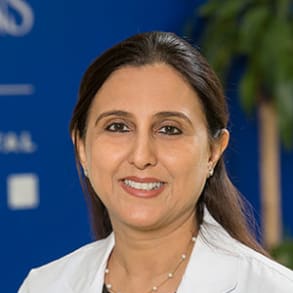A multidisciplinary team referred to as CUIRE — Care Under Intestinal Rehabilitation Excellence — reported outcomes over 90% at a recent Maternal, Fetal & Neonatal conference at Johns Hopkins All Children’s Hospital in St. Petersburg, Florida.
Hi, my name is Doctor Fazer Shakil. I am a neonatologist at Johns Hopkins, All Children's Hospital and also the medical director for the intestinal rehabilitation program called Cure, which is Care Under Intestinal Rehabilitation Excellence. Our cure program provides a comprehensive range of multidisciplinary services to rehabilitate patients with diagnosed with short bow syndrome and intestinal failure. Our team consists of a pediatric gastroenterologist, a pediatric surgeon, a neonatologist, a hospitalist, a advanced practice provider, a pharmacist, intestinal rehab, trained dietician and RN coordinator. So it takes a village to take care of these specialized individuals. Our cure program at Johns Hopkins, all Children's was launched in 2017 and we have devoted services to rehabilitate these patients in order to give them the most optimum outcomes by medical surgical and nutritional rehabilitative strategies. One of the major complications these patients have is associated with prolonged use of intravenous nutritional therapy due to inability to absorb nutrients from the intestinal tract, leading to hepatic failure and need for intestinal transplantation. So, our goal is to improve the mortality and the morbidity of these infants and prevent them from going progressing to intestinal transplants in the recent maternal fetal and neonatal continuum of care conference. We portrayed our outcomes which showed our survival from the program is over 90%. Our multidisciplinary team evaluates patients proactively and identify the patients who require rehabilitations and do inpatient rounding with them routinely uh on a routine basis. We also provide longitudinal continuum of care not only for inpatient but also to help them prepare for discharge and transition to home and in the community. Our goal is to foster robust communication and collaboration with medical and surgical specialties and provide individualized care to these patients. We also help educate families to help them transition for chronic care needs. One of the major missions of our program is to provide excellent quality of care to these specialized individuals by integrated multidisciplinary care management until they are completely rehabilitated. So once it was a fatal condition, but now it's survivable in Children, it's complex, but most of these tens and thousands of Children are surviving and not only surviving but thriving into adulthood. Thank you.



